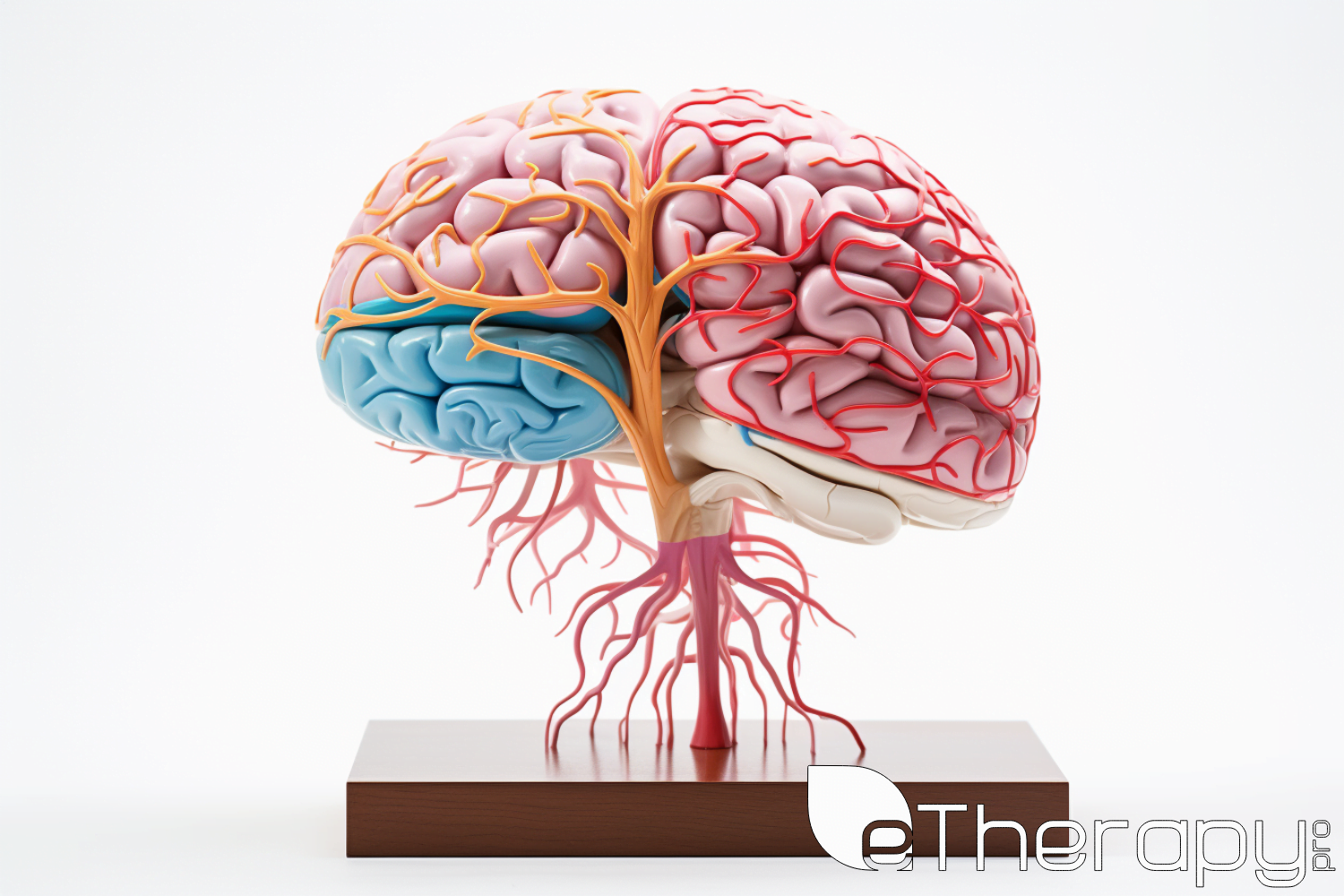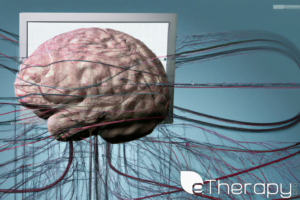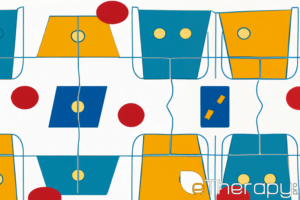
Have you ever felt like your mind is a whirlwind of thoughts, racing faster than a high-speed train? Focusing on a single task might seem as daunting as climbing Mount Everest. If so, you’re not alone. Approximately 6% of children and 2.5% of adults worldwide experience Attention Deficit Hyperactivity Disorder (ADHD), a neurodevelopmental condition marked by persistent inattention, hyperactivity, and impulsivity. ADHD isn’t just a childhood disorder; it often persists into adulthood, impacting every area of life, from education and work to relationships and self-esteem.
In this comprehensive exploration, we delve into the intricacies of ADHD, unraveling its complexities to foster a deeper understanding and empathy toward those affected. We aim to illuminate the path for better management, support, and acceptance of this condition. With a blend of scientific insights and personal anecdotes, we aspire to create an enlightening and engaging narrative. This journey through the world of ADHD is not just about understanding the symptoms and challenges; it’s about recognizing the unique strengths and potential of those who live with it. By shedding light on this often misunderstood condition, we hope to inspire a more inclusive and supportive environment for everyone touched by ADHD.
What is ADHD?
ADHD, or Attention Deficit Hyperactivity Disorder, is a neurodevelopmental condition characterized by significant challenges in attention, hyperactivity, and impulsiveness, extending beyond what is typical for a given developmental stage. It often begins in childhood and may persist into adulthood, impacting education, relationships, and personal management. Individuals with ADHD typically struggle with organizing tasks, maintaining focus on a single task, and following detailed instructions. This condition is more than a mere concentration issue; it affects various executive functioning skills, including memory, flexible thinking, and self-regulation.
The ADHD Brain
The brain of an individual with ADHD displays unique structural and chemical differences compared to those without the condition. Neuroimaging studies have shown variations in brain regions responsible for attention, impulse control, and executive functions. Neurotransmitters, particularly dopamine and norepinephrine, which play a critical role in regulating attention and behavior, function differently in the ADHD brain. These differences lead to the characteristic symptoms of inattention, impulsivity, and hyperactivity. It’s crucial to understand that these differences do not imply a deficit, but rather a distinctive way of functioning, often requiring specialized strategies for optimal management.
The world needs different kinds of minds to work together. – Dr. Temple Grandin
Common Misconceptions
Many myths about ADHD contribute to misunderstandings and stigma. One common misconception is that ADHD is the result of poor parenting or a lack of discipline. However, ADHD is a biological condition and is not caused solely by environmental factors. Another myth is that ADHD only affects children and that they outgrow it as adults, which is not true; many adults continue to experience ADHD symptoms. Additionally, it’s often mistakenly seen as a disorder primarily affecting males, but it affects individuals of all genders. Correcting these misconceptions is vital for developing empathy and providing appropriate support for those with ADHD.
Recognizing ADHD
Identifying ADHD involves understanding its diverse symptoms, which can vary significantly from person to person. The primary symptoms are inattention, hyperactivity, and impulsivity. Inattention might manifest as difficulty in sustaining focus, forgetfulness in daily activities, and a tendency to be easily distracted. Hyperactivity in children often appears as excessive fidgeting, an inability to stay seated, or excessive running or climbing. In adults, this may present as restlessness or an inability to engage in leisure activities quietly. Impulsivity can be observed in hasty actions without much thought, interrupting others, or an inability to wait for one’s turn. These symptoms can cause significant impairment in social, academic, or occupational settings. It’s important to note that having these symptoms alone does not confirm ADHD; they must be consistent and pervasive, significantly impacting the individual’s daily life.
ADHD in Different Ages
ADHD’s manifestations can vary across different age groups. In preschool-aged children, symptoms often present as extreme hyperactivity and difficulty in following routines. School-aged children might show academic challenges, behavioral problems in school, and difficulty in forming friendships. Teenagers with ADHD may experience issues with self-esteem, risky behaviors, and academic struggles. In adults, Attention Deficit Hyperactivity Disorder often manifests as difficulties in time management, organizational skills, maintaining employment, and relationship problems. Recognizing these age-specific manifestations is crucial for early intervention and support.
Diagnosis Process
Diagnosing ADHD involves a comprehensive evaluation by healthcare professionals like psychologists, psychiatrists, or pediatricians. There’s no single test; diagnosis is based on a detailed history and behavioral assessment. Clinicians use the Diagnostic and Statistical Manual of Mental Disorders (DSM-5) criteria, which include checking if symptoms are present in multiple settings, have lasted at least six months, and are inappropriate for the individual’s age. Interviews and questionnaires are common tools, and input from family, teachers, or others can help paint a complete picture of behaviors in different environments. If you’re seeking initial guidance, platforms like eTherapyPro offer access to professionals who can provide initial assessments and advice on navigating the diagnosis process.
 Genetic and Environmental Factors of ADHD
Genetic and Environmental Factors of ADHD
ADHD’s etiology is multifaceted, involving both genetic and environmental factors:
Genetics:
- Family History: ADHD tends to run in families, highlighting a strong genetic link.
- Twin and Family Studies: Such studies underscore the heritability of ADHD, revealing a significant genetic influence.
- Environmental Factors:
- Prenatal Influences: This includes exposure to substances like alcohol or tobacco during pregnancy.
- Birth Factors: Low birth weight and premature birth can be potential risk factors.
- Exposure to Toxins: Early life exposure to environmental toxins, like lead, has been implicated in an increased risk of developing ADHD.
- Psychosocial Factors: Psychosocial factors, such as stressful life events and family dynamics, may also contribute to the development of ADHD, though their precise influence is less clear.
These elements indicate that ADHD is not the result of a single factor but rather a complex interplay of genetic predispositions and environmental circumstances.
Myths vs. Facts
Dispelling myths is crucial for understanding ADHD:
- Myth: ADHD is caused by a high-sugar diet or poor nutrition.
Fact: Dietary factors can influence behavior, but no direct causative link with ADHD has been conclusively proven. - Myth: ADHD is simply the result of bad parenting or lack of discipline.
Fact: Parenting styles do not cause ADHD, though they can influence its management. - Myth: Excessive screen time is a primary cause of ADHD.
Fact: While too much screen time can exacerbate symptoms in some individuals, it’s not a recognized cause of ADHD. - Myth: ADHD is a condition that only affects children.
Fact: ADHD can persist into adulthood, affecting various aspects of adult life.
Understanding these facts versus myths helps in forming a more accurate view of ADHD, leading to better support and management strategies for those affected.
Distinguishing ADHD
Identifying ADHD accurately is crucial, especially when differentiating it from other behavioral conditions. While ADHD shares symptoms with several disorders, there are distinct differences:
- ADHD vs. Anxiety Disorders: Both can involve concentration difficulties, but anxiety usually stems from worry or fear. ADHD, however, is characterized by a more generalized attention deficit, often not linked to anxious thoughts.
- ADHD vs. Autism Spectrum Disorder (ASD): ASD and ADHD can both present social skill challenges and repetitive behaviors. However, ASD typically includes more pronounced difficulties with social communication and interaction.
- ADHD vs. Mood Disorders: Disorders like depression may mimic the inattentiveness seen in ADHD, but mood disorders are primarily characterized by persistent emotional disturbances.
- ADHD vs. Learning Disorders: Learning disorders are specifically related to challenges in academic skills, such as reading or math, whereas ADHD encompasses a wider range of attention and executive functioning issues.
Recognizing these distinctions is vital for appropriate ADHD assessment and treatment, ensuring that individuals are not misdiagnosed and receive the correct support.
ADHD and the Power of Hyperfocus
People with ADHD often struggle with staying focused, but they can also have moments of intense concentration on things they love. This is called hyperfocus. It’s a hidden strength that can be harnessed to achieve great things.
Hobbies: A Creative Outlet Engaging in hobbies can be a fantastic way for people with ADHD to channel their energy and creativity. Hobbies can provide a sense of accomplishment and satisfaction, helping them to feel good about themselves.
A Wide Range of Interests People with ADHD have a diverse range of interests, which is a testament to their unique talents and abilities. This challenges the common misconception that ADHD is only about attention problems.
Hobbies as Coping Mechanisms For many people with ADHD, hobbies can be a valuable tool for managing their symptoms and improving their overall well-being. By understanding how hobbies can help and hinder people with ADHD, we can develop personalized strategies to support their growth and success.
Daily Challenges
Living with ADHD presents a multitude of daily challenges that can impact various aspects of life. These challenges are often characterized by:
Difficulty in Focus: Individuals with ADHD find it challenging to concentrate on tasks, which can lead to reduced productivity and frequent forgetfulness.
Impulsivity: Impulsive behaviors, such as blurting out comments or making hasty decisions, can strain personal and professional relationships.
Time Management: Time management skills are often underdeveloped, resulting in missed deadlines and appointments.
Organization: Keeping things organized can be a constant struggle, with clutter and disarray in both physical spaces and schedules.
Emotional Regulation: Managing emotions can be challenging, leading to mood swings and emotional intensity.
Academic and Work Challenges: ADHD can affect performance at school or work, making it hard to meet expectations and achieve one’s potential.
Most do not understand that when a person is faced with a task in which he has strong and immediate personal interest, either because he really enjoys it or because he fears that not doing the task will quickly bring some very unpleasant consequence, the chemistry of the brain is instantly altered to mobilize. And most don’t know that this alteration of brain chemistry is not under voluntary control. ADHD clearly appears to be a problem of willpower failure, but it is actually a problem with the interacting dynamics of emotion, working memory, and the chemistry of the brain. — Dr. Thomas Brown
These daily challenges, while daunting, are manageable with the right strategies and support systems in place.

Treatment and Management of ADHD
Effective treatment and management of ADHD require a comprehensive approach, encompassing medication, behavioral therapies, and lifestyle modifications to address the diverse needs of those with the condition.
Medication Strategies in ADHD Treatment
- Stimulants: The Primary Medication Choice
Stimulants such as methylphenidate and amphetamines are commonly prescribed for ADHD. These medications work by enhancing neurotransmitter activity in the brain, particularly dopamine and norepinephrine, which are crucial for attention and focus. They have been proven effective in reducing core symptoms like impulsivity, hyperactivity, and inattention. However, it’s important to monitor for side effects, such as sleep disturbances and decreased appetite, and adjust the dosage accordingly. - Non-Stimulant Medications: Alternatives to Consider
For individuals who do not respond well to stimulants or experience significant side effects, non-stimulant medications like atomoxetine are available. These drugs work by targeting different neurotransmitter systems and can be effective in improving attention and reducing impulsivity. Guanfacine and clonidine, originally used for high blood pressure, are also used to manage Attention Deficit Hyperactivity Disorder symptoms, especially in individuals who may experience anxiety alongside ADHD.
Behavioral Therapies for ADHD
- Cognitive-Behavioral Therapy (CBT)
CBT is particularly effective in teaching individuals with ADHD to change negative thought patterns and behaviors. It focuses on practical solutions to everyday problems and challenges caused by ADHD. CBT helps in developing organizational skills, improving time management, and learning strategies to reduce distractibility. It’s beneficial not only for managing ADHD symptoms but also for addressing commonly co-occurring issues like low self-esteem and anxiety. - Behavior Modification Techniques
Behavior modification is especially useful for children and adolescents with ADHD. These techniques involve structured reward systems to encourage positive behavior and reduce Attention Deficit Hyperactivity Disorder symptoms. Parents and teachers can implement simple strategies like consistent routines, clear expectations, and immediate feedback to support positive behavior changes. This approach helps in reinforcing desired behaviors and gradually reducing undesirable ones.
Lifestyle Adjustments for ADHD Management
- Dietary and Physical Activity Considerations
A balanced diet is essential for overall health and can impact the management of Attention Deficit Hyperactivity Disorder symptoms. While no specific diet cures ADHD, certain dietary changes can help improve focus and energy levels. Including protein-rich foods in the diet, and maintaining a consistent meal schedule can stabilize blood sugar levels, which in turn can aid concentration and energy levels. Regular physical activity is equally important. Exercise releases neurotransmitters like endorphins and dopamine, which can improve mood and focus, making it a natural and effective way to manage ADHD symptoms. - Stress Management and Relaxation Techniques
Stress management is crucial for individuals with ADHD, as stress can exacerbate symptoms. Techniques such as mindfulness, meditation, and yoga can significantly reduce stress levels. Mindfulness practices help in increasing self-awareness and focus, which can be particularly beneficial for managing impulsivity and hyperactivity. Regular practice of these relaxation techniques can lead to better emotional regulation and an overall improvement in managing Attention Deficit Hyperactivity Disorder symptoms.
How to Help
Supporting someone with Attention Deficit Hyperactivity Disorder is an important aspect of their journey toward managing the condition. It requires understanding, empathy, and practical strategies tailored to their unique challenges and strengths. Offering support effectively can significantly enhance their ability to manage and thrive with ADHD.
Providing Tips for Friends and Family:
Support from friends and family can make a significant difference in the life of someone with ADHD. Here are some ways to offer effective support:
Understanding ADHD:
Gaining a comprehensive understanding of ADHD is crucial. Recognizing that Attention Deficit Hyperactivity Disorder affects each individual differently and is more than just a difficulty with attention or hyperactivity can help in providing better support. It’s also important to stay informed about the latest research and strategies in ADHD management.
Effective Communication:
Open, non-judgmental communication is key. Discuss challenges and strategies openly, setting realistic expectations and offering encouragement and support. It’s essential to listen actively and respond empathetically, ensuring the individual feels heard and understood.
Creating a Structured Environment:
Establishing routines and organizing spaces can significantly assist in managing daily tasks and reducing the feeling of being overwhelmed. This could involve collaboratively setting up a daily planner, organizing living spaces to reduce distractions, and helping establish a consistent sleep schedule.
Encouragement and Positive Reinforcement:
Recognizing and celebrating achievements, no matter how small, is vital for building self-esteem and motivation. Focus on the individual’s strengths and provide positive feedback to encourage continued effort and improvement.
Support in Organization and Time Management:
Assisting with organizing tasks, managing time, and breaking down larger tasks into smaller, manageable steps can be very beneficial. This might include helping to prioritize tasks, setting reminders, and creating checklists.
Promoting Self-Reliance and Independence:
While support is essential, encouraging independence and self-reliance in managing ADHD is also important to build confidence and coping skills. This involves striking a balance between offering help and allowing the individual to take charge of their own management strategies.
Encouraging Professional Support:
Recommending professional help, including therapy or ADHD coaching, can help manage the condition more effectively. Encourage seeking out professionals who specialize in Attention Deficit Hyperactivity Disorder for tailored advice and support.
Educational Support for Students with ADHD
Collaborate with Educators:
- Develop a Personalized Learning Plan: Work closely with teachers to create a plan that addresses the student’s specific needs and challenges.
- Utilize Accommodations: Implement accommodations such as extended time for tests, quiet study spaces, or preferential seating arrangements.
- Maintain Regular Communication: Regularly communicate with teachers to monitor progress, make adjustments as needed, and provide support.
Leverage Assistive Technologies:
- Explore Various Tools: Encourage the use of assistive technologies like audiobooks, organizational apps, and note-taking tools.
- Find What Works Best: Help students experiment with different technologies to identify the most effective ones for their individual needs.
Implement Effective Study Strategies:
- Tailor Techniques: Use study techniques that are specifically designed for students with ADHD, such as visual aids, short study sessions, and designated study spaces.
- Experiment and Find What Works: Encourage students to try different study methods to determine the most effective approach for them.
Foster Positive Peer Interactions:
- Build Social Skills: Support the development of social skills to help students navigate social situations and build positive relationships.
- Facilitate Peer Interactions: Create opportunities for students to interact with peers and participate in group activities.
By combining these strategies, educators and parents can provide comprehensive support to help students with ADHD succeed academically and socially.
Fostering Positive Peer Interactions: Encouraging the development of social skills and facilitating positive peer relationships can improve the overall educational experience for students with ADHD. Support in navigating social situations and building friendships can be crucial for their emotional and social development.
People with ADHD often have a special feel for life, a way of seeing right into the heart of matters, while others have to reason their way methodically. – Dr. Edward M. Hallowell
Conclusion
ADHD, while presenting challenges, also offers unique perspectives and strengths. Embracing ADHD means more than just managing symptoms; it’s about recognizing and celebrating the diverse and vibrant ways individuals with ADHD experience and interact with the world.
Those with Attention Deficit Hyperactivity Disorder possess a remarkable ability to think outside the box, demonstrating creativity, resilience, and adaptability. Their journey is not one of limitations but of endless possibilities for growth, learning, and achievement. Harnessing their unique talents and strengths allows them to lead fulfilling and successful lives. Resources and support systems, like eTherapyPro, offer invaluable guidance, empowering individuals with ADHD to overcome challenges and transform them into opportunities for growth and self-discovery. The narrative around ADHD needs to shift from a focus on deficits to a celebration of differences, where each person’s unique brain wiring offers something special to the world.
As we foster understanding, acceptance, and support for those with ADHD, we contribute to a more inclusive and empathetic society. Create spaces that not only accommodate but also appreciate the distinct qualities of the Attention Deficit Hyperactivity Disorder mind. Together, we can create a future where individuals with ADHD are not just surviving but thriving, using their extraordinary capabilities to innovate, inspire, and lead.
It is better to be high-spirited even though one makes more mistakes, than to be narrow-minded and all too prudent. – Vincent Van Gogh
Discover how to navigate the unique challenges and strengths of an ADHD brain. Learn to appreciate the vibrant, dynamic nature of a mind that sees the world a little differently. Embrace the beauty and strength in diversity.
 Genetic and Environmental Factors of ADHD
Genetic and Environmental Factors of ADHD








